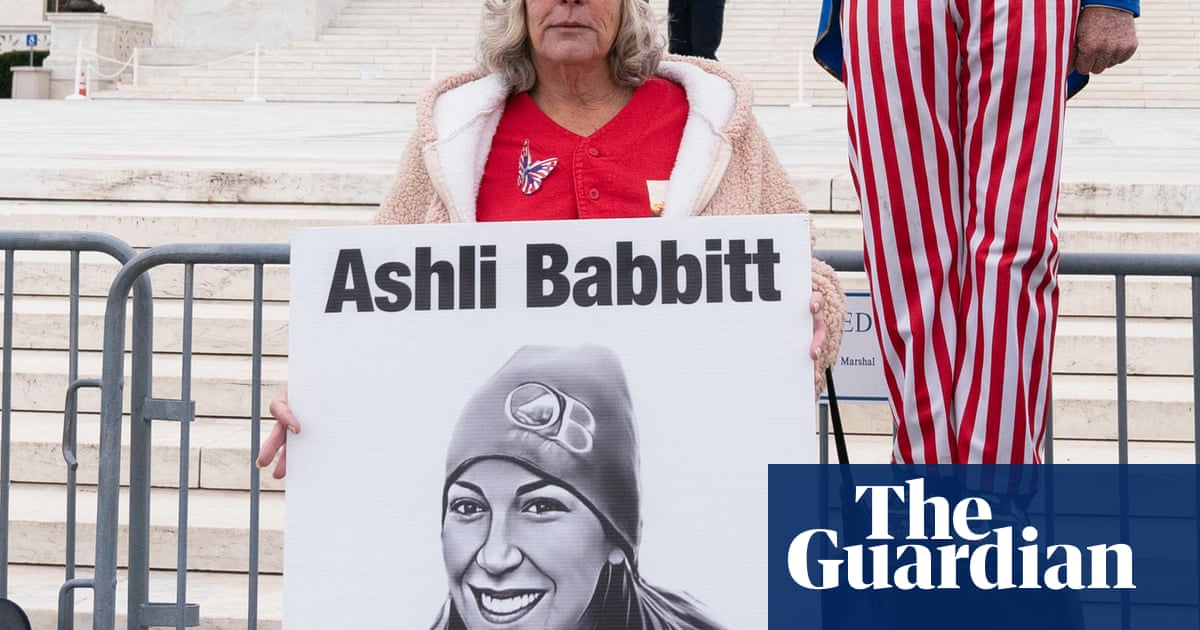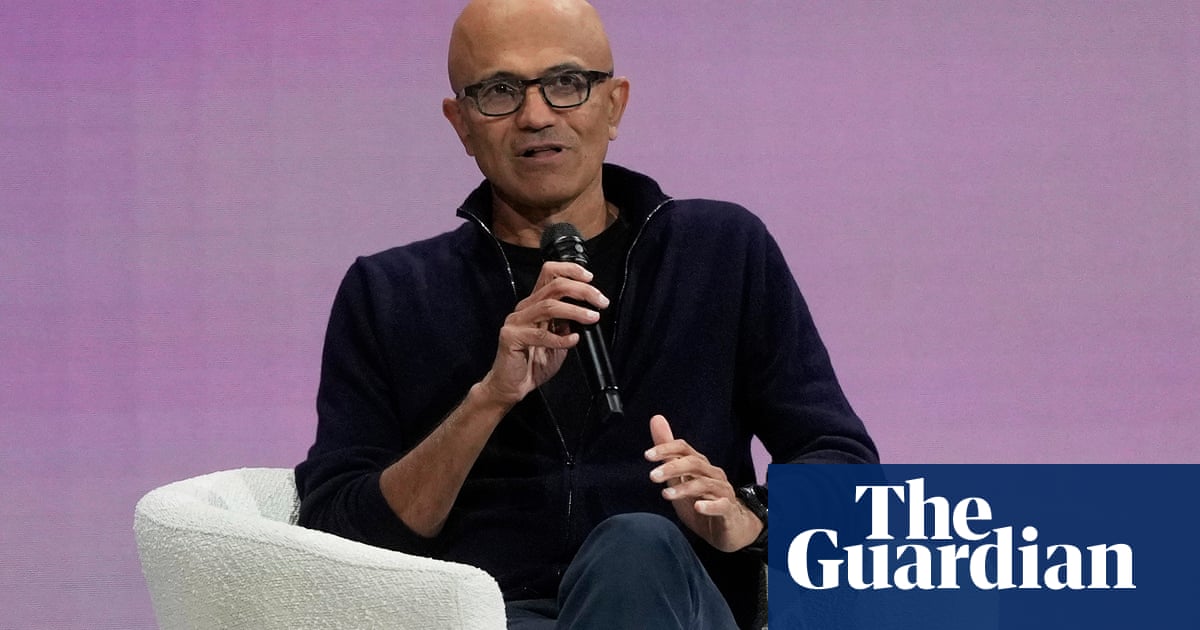US could strike trade deals with some countries 'as early as this week', treasury secretary Scott Bessent says

Chris Stein
Treasury secretary Scott Bessent told lawmakers that some countries could strike new trade deals with the United States as soon as this week.
“I would think that, perhaps as early as this week, we will be announcing trade deals with some of our largest trading partners. They have come to us with very good offers,” the secretary told a House appropriations subcommittee on Tuesday morning.
The Trump administration is looking to negotiate deals with dozens of countries ahead of a 9 July deadline, after which reciprocal tariffs the president unveiled last month, then paused for 90 days, will go back into effect. Many economists worry the levies, which are meant to be equal to whatever barriers the trading partners impose on US imports, will send prices spiking in the United States and disrupt trade globally.
In his testimony to Congress, Bessent defended the president’s approach to tariffing major trading partners, saying: “In negotiating with some of them, they may not like the tariff wall that president Trump has put up, but they have them. So if tariffs are so bad, why do they like them?”
Key events Show key events only Please turn on JavaScript to use this feature
In a heated exchange at an oversight hearing of the House appropriations subcommittee on homeland security, Kristi Noem was forced to acknowledge that the US government doesn’t have the right to deport US citizens.
Noem was grilled by Democratic representative from Illinois Lauren Underwood on Donald Trump’s comments about not knowing whether he has to uphold the constitution and asked if she herself was committed to the constitution, per the oath she swore on taking on her role as homeland security secretary. “Absolutely,” Noem replied.
“Of course the president is within his authority to drive policy decisions within the bounds of federal law and the constitution, but that’s not what you’ve been doing,” said Underwood.
What I’m asking is whether you believe that you have the authority to ignore appropriations law. Do you believe that the constitution gives the executive branch unilateral authority to withhold funds appropriated by the legislative branch?
Underwood stopped Noem several times for not answering the question and said the president is “expected to follow the law” in seeking recisions if he disagrees with certain spending, stating that it is Congress, not the president, that controls the power of the purse.
Underwood then pressed Noem several times for a “yes or no” answer on whether she believes the constitution guarantees everyone in the US the right to due process.
“Do you believe that the US government has the authority to deport American citizens?” she asked. Noem replied: “No, and we are not deporting US citizens.” Underwood said she was glad to hear that Noem didn’t believe they had that authority, adding:
I know everyone viewing this hearing knows that several US citizens have been deported to date.

Sam Levine
Two lawyers who recently left the justice department announced on Tuesday they are starting their own firm to represent civil servants affected by Donald Trump’s efforts to dismantle the federal government.
The lawyers, Clayton Bailey and Jessica Merry Samuels, said their firm would “challenge in federal court the administration’s unlawful tactics, adding to the efforts of nonprofits and other organizations stepping up to meet the moment”.
“The Trump administration’s executive orders targeting law firms have created a culture of fear and made it more difficult for people in need of counsel—including federal employees—to find justice,” Bailey said in a statement. “We have been inspired by the growing number of lawyers creating new firms and organizations to protect individual rights and the rule of law, and we have launched the Civil Service Law Center to help contribute to those efforts.”
The decision to create the firm comes as many of the nation’s biggest and most prestigious law firms have made deals with Trump to avoid being punished with executive orders. Four firms - Perkins Coie, Jenner & Block, WilmerHale, and Susman Godfrey - have all sued the administration for executive orders targeting the firms and won at least preliminary orders blocking them (Perkins Coie earned a permanent order on Friday).
Abbe Lowell, a prominent Washington lawyer who has defended Hunter Biden and represented Ivanka Trump and Jared Kushner, left his firm last week to start a practice focused on representing targeted federal employees. The firm is currently representing Mark Zaid, a prominent lawyer who frequently represents whistleblowers, in a suit filed Monday to try and force Trump to restore his security clearance.
US could strike trade deals with some countries 'as early as this week', treasury secretary Scott Bessent says

Chris Stein
Treasury secretary Scott Bessent told lawmakers that some countries could strike new trade deals with the United States as soon as this week.
“I would think that, perhaps as early as this week, we will be announcing trade deals with some of our largest trading partners. They have come to us with very good offers,” the secretary told a House appropriations subcommittee on Tuesday morning.
The Trump administration is looking to negotiate deals with dozens of countries ahead of a 9 July deadline, after which reciprocal tariffs the president unveiled last month, then paused for 90 days, will go back into effect. Many economists worry the levies, which are meant to be equal to whatever barriers the trading partners impose on US imports, will send prices spiking in the United States and disrupt trade globally.
In his testimony to Congress, Bessent defended the president’s approach to tariffing major trading partners, saying: “In negotiating with some of them, they may not like the tariff wall that president Trump has put up, but they have them. So if tariffs are so bad, why do they like them?”
Federal judge orders Trump administration to facilitate return of second man improperly deported to El Salvador
A judge has ordered the Trump administration to facilitate the return to the US of a second man it improperly deported, in a case with parallels to that of Kilmar Ábrego García, Politico reports.
Politico has identified the man as Daniel Lozano-Camargo, a 20-year-old Venezuelan who was living in Houston and running a car detailing business until 15 March, when the Trump administration declared him an “alien enemy” and swiftly deported him to an El Salvador prison along with hundreds of other men, including Ábrego García.
Unlike Ábrego García, Lozano-Camargo was “expelled under the Trump administration’s legally questionable invocation of the Alien Enemies Act”. Here’s more from Politico:
Like many of the Venezuelans expelled under the 18th century wartime law, he contends he came to the US to escape persecution in his home country. And also like many of the other deportees, his family members believe he was accused of being a Venezuelan gang member primarily because of his tattoos.
Crucially, Lozano-Camargo was covered by a 2024 legal settlement that barred immigration authorities from deporting him while his request for asylum was pending. US district judge Stephanie Gallagher, the Trump-appointed judge who approved that settlement, ruled last month that Lozano-Camargo’s deportation violated the agreement.
Gallagher ordered the administration to “facilitate” Lozano-Camargo’s return but, as with Ábrego García, the administration is resisting. In a court filing released on Monday, the justice department called Lozano-Camargo a member of “a violent terrorist gang” and said that disqualifies him from asylum in the US. […]
Gallagher’s ruling marked the second time that courts have declared that the Trump administration violated pre-existing court orders by deporting people to a notorious El Salvador prison in March. […] US district judge Paula Xinis ruled that the administration had disobeyed a 2019 immigration court order barring the government from deporting Ábrego García to El Salvador because he faced a risk of violence there. The supreme court upheld Xinis’ order directing the Trump administration to facilitate his return and made clear that his deportation was illegal.
Gallagher is set to hold a hearing on the issue today in her Baltimore courtroom.
As House Republicans hold frenetic closed-door meetings this week trying to sort through outstanding issues to get their mega budget bill – which aims to cut taxes, beef up border security and raise defense funding, among other matters – over the line, Politico highlights that there’s plenty of anxiety in key battleground districts over one such key sticking issue – potential cuts to Medicaid, according to new data from GOP polling firm Meeting Street Insights.
Sixty-eight per cent of voters said cutting Medicaid benefits to pay for tax cuts is a bad idea – including 44% of Republicans. And looking ahead to next year’s midterms, 52% of voters said they’d be less likely to vote for a member of Congress who supports Medicaid cuts. The poll was conducted across 10 battleground districts in Arizona, Colorado, Iowa, Maine, Michigan, New York and Pennsylvania.
House speaker Mike Johnson admitted yesterday that his ambitious timeline for the bill could slip amid intra-party fighting. Politico reported that if House Republicans can’t pass the megabill by Memorial Day, as he is targeting, they will “shortly thereafter”, Johnson said.
As we’ll be bringing you all the key lines from Donald Trump and Mark Carney’s meeting later this morning, here are the key timings: the US president and Canadian PM are due to meet at 11.30am ET at the White House before holding an 11.45 meeting in the Oval Office, where they will also take questions from reporters. From 12.15pm the two leaders will have lunch in the Roosevelt Room.
White House removes NTSB vice chair - report
The White House on Monday removed the vice chair of the National Transportation Safety Board, the latest in a series of dismissals by Donald Trump from independent US government agencies, sources told Reuters.
Alvin Brown, a Democrat who was the first-ever African American elected mayor of Jacksonville, Florida, was designated as vice chair last December by then president Joe Biden after he joined the five-member board in March 2024. Brown did not immediately return a Reuters email seeking comment. A White House official confirmed the departure.
US trade deficit surges to record high in March
The US trade deficit widened to a record high in March as businesses boosted imports of goods ahead of tariffs, which dragged gross domestic product into negative terrain in the first quarter for the first time in three years, Reuters reports.
The trade gap jumped 14% to a record $140.5bn from a revised $123.2bn in February, the Commerce Department’s Bureau of Economic Analysis (BEA) said on Tuesday.
Donald Trump’s sweeping tariffs, including raising duties on Chinese imports to a staggering 145%, fuelled a rush by businesses to bring in merchandise to avoid higher costs. While reciprocal tariffs with most trade partners were suspended for 90 days, duties on Chinese goods came into effect in early April, triggering a trade war with Beijing.
Imports vaulted 4.4% to an all-time high $419bn in March. Goods imports soared 5.4% to a record $346.8bn. Exports climbed 0.2% to $278.5bn, also a record high. Exports of goods increased 0.7% to $183.2bn.
The government reported last week that the trade deficit cut a record 4.83 percentage points from GDP last quarter, resulting in the economy contracting at a 0.3% annualized rate, the first decline since the first quarter of 2022.
Economists expect the flood of imports to ebb by May, which could help GDP to rebound in the second quarter. They, however, caution that the lift from subsiding imports could be offset by a drop in exports as other nations boycott American goods and travel. There has been a decrease in visitors to the US, especially from Canada, in protest over the punitive tariffs as well as an immigration crackdown that has seen travellers detained and deported.
Axios has a thought-provoking piece on what critics on both the left and right have dubbed “Maga Maosim” to characterize the emerging nationalist movement under the second Trump administration. “His second term style,” Axios writes, “reflects ideas the US has long fought against – now reframed in nationalist terms.” Axios writes:
President Trump’s grand economic vision relies on a simple tradeoff: that Americans will accept short-term personal sacrifice – higher prices, fewer options, slimmer profits – in service of long-term national strength.
Trump is breaking sharply from free-market orthodoxy in his second term, blending bursts of anti-capitalism with a top-down, nationalist agenda for American dominance.
Critics on the left and right warn of an emerging “MAGA Maoism” – a movement that demands ideological purity, glorifies economic sacrifice, and embraces state power as a means to reshape society.
Trump’s strongman instincts – and his deep skepticism of cultural elites and bureaucrats – have only intensified the provocative comparisons to China’s revolutionary leader.
[There are some obvious key differences, as noted in the piece. Trump’s worldview isn’t driven by Marxist theory but by a deep-seated belief that America has been ripped off for decades. He’s also constrained by the rule of law, unlike Mao Zedong’s violent communist regime. Plus, much of Trump’s agenda remains pro-capitalist: He champions private industry and his appeals to sacrifice are rooted in geopolitical competition, not class struggle.]
But, Axios writes, listen to recent rhetoric from Trump and his top advisers, and it’s clear why the analogy has gained traction. From Trump likening the US to a department store in reference to his “setting the price” with his tariff policy, to his now infamous suggestion that kids will have fewer dolls to play with owing to potential supply chain shortages, to his assertion that he’ll personally call CEOs whose business decisions he disagrees with.
“The Maga movement,” Axios notes, “sees industrial labor as the backbone of American identity, and is pursuing a vision steeped in nostalgia and nationalism.” Trump’s officials have talked about what is essentially the idea of industrial “jobs for life”, avoiding the “spiritual degradation of the working class”, and even the idea that fired federal workers could help supply manufacturing labor (drawing comparison’s to Mao’s “re-education” policy).
“The big picture,” Axios notes, “is that Trump’s embrace of centralized economic power is just one piece of a broader governing style that borrows heavily from strongman traditions.”
Ritualistic praise: Trump’s televised cabinet meetings always begin with his secretaries showering him in praise – casting the president as the only leader capable of restoring US greatness.
Loyalty tests: Trump and his aides have carried out mass purges of career officials deemed insufficiently loyal, across the federal government.
Civil society: Trump has sought retribution against the media, law firms, NGOs, and political opponents. Some Chinese see echoes of the Cultural Revolution, when nearly all of society’s institutions were destroyed.
War on academia: The Trump administration has cracked down on dozens of universities over alleged antisemitism and DEI programs, moving to weaken elite liberal institutions seen as hostile to Maga.
And finally – military spectacle: The Pentagon plans to host a massive military parade on Trump’s birthday in June.
Next round of Iran-US nuclear talks likely to be in Oman this weekend – report
A fourth round of nuclear talks between Iran and the United States is likely to take place over the weekend in the capital of Oman, with Iranian state media pointing to 11 May as a probable date.
Cautioning that the timing was not yet finalised, an Iranian source close to the negotiating team told Reuters: “The talks will take place over two days in Muscat, either on Saturday and Sunday or Sunday and Monday.”
Initially scheduled for 3 May in Rome, the fourth round of negotiations was postponed with mediator Oman citing “logistical reasons”.
Top US negotiator Steve Witkoff also said Washington was trying to hold the next round of talks this weekend, according to Axios, a day after Iran’s foreign ministry reiterated Tehran’s commitment to diplomacy with Washington.
EU plans tariffs on €100bn of US goods if talks fail, Bloomberg News reports
The European Union plans to hit about €100bn ($113.26bn) worth of US goods with additional tariffs if trade talks fail to deliver a satisfactory result for the bloc, Bloomberg News reported on Tuesday.
The proposed retaliatory measures will be shared with member states as early as Wednesday and consultations will last for a month before the list is finalized, the report said, citing people familiar with the matter.

 1 week ago
24
1 week ago
24

















































